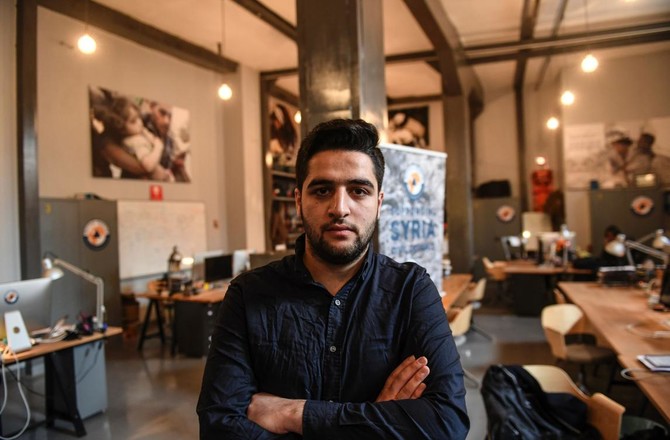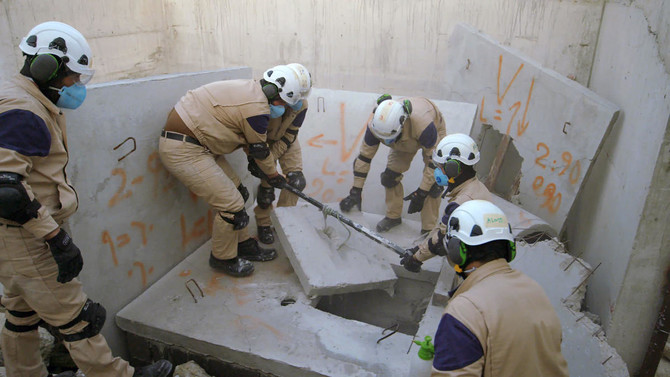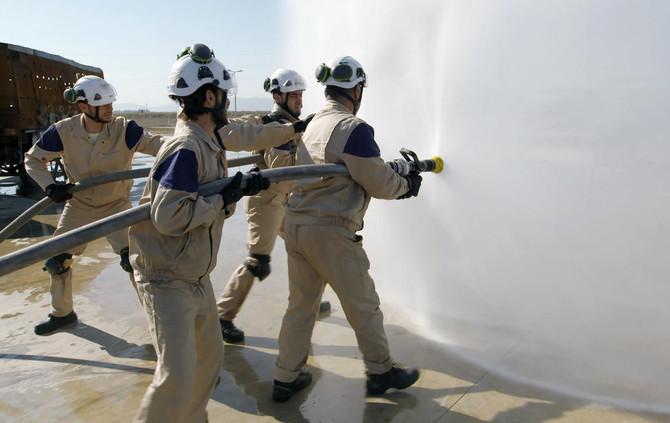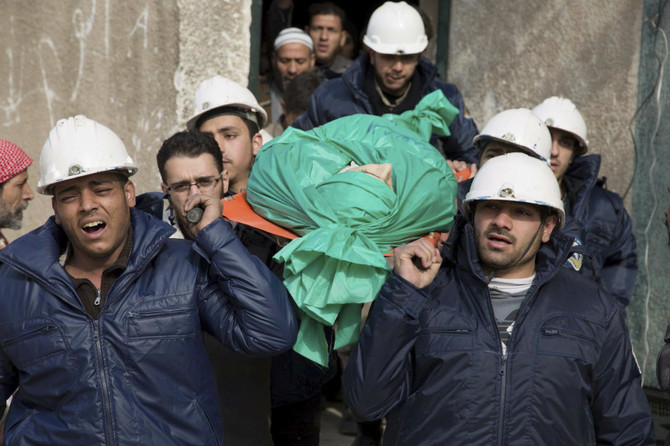LONDON: Members of the White Helmets say they hope the Oscar awarded to a documentary about the rescue group will raise awareness of the Syria conflict, calling on the world “to stop the bloodshed.”
The 40-minute Netflix film “The White Helmets”, directed by British documentary-maker Orlando von Einsiedel, follows volunteers as they conduct search and rescue operations in Aleppo and undergo training in Turkey.
It clinched the Oscar for the best documentary short in Los Angeles on Sunday night.
Khaled Khatib, a 21-year-old volunteer and cinematographer on the film, was barred from traveling to the US to attend the Oscars — but said that didn’t matter.
“I don’t care if I traveled to the Oscars or not. But the most important thing for me is that our film won,” he told Arab News from Istanbul.
Khatib said he hopes the film will raise awareness of the bloody conflict in Syria, which is almost six years old, and shows that people care about the people the White Helmets serve.
“This film speaks about the situation in Aleppo, speaks about how the civilians in Syria are living,” he said. He added that he hopes the people of Syria will be able to “live in peace and safety again” and that refugees will one day return.
The White Helmets operate in rebel-held parts of Syria, which have been subjected to fierce bombardment by the government and Russia’s air force during the civil war.
The film captures the highly dangerous moments when the White Helmets arrive at the scene of an airstrike, which may be imminently bombed for a second time in a so-called “double tap” attack. Many of the group’s members have been killed by Syrian President Bashar Assad’s war planes.
Syria’s government has accused the group of being a front for Al-Qaeda and of faking footage of the aftermath of air strikes for propaganda purposes, charges the White Helmets deny.
“We are honored that ‘The White Helmets’ film has received an Oscar,” Raed Saleh, head of the Syria Civil Defense — as the group is also known — said in a statement posted on Twitter early on Monday.
“But we are not happy to do what we do. We abhor the reality we live in,” Saleh said. “We hope this film and the attention helps move the world to stop the bloodshed in Syria.”
Members of the White Helmets could not attend the awards ceremony in Los Angeles because of passport issues and air strikes in Syria, the group said in a statement.
Both Saleh and Khatib were given US visas. However, in a statement early on Sunday, the White Helmets said Saleh would not be able to leave his work because of the high intensity of air strikes, while Khatib could not attend because Syria’s government had canceled his passport.
But The Associated Press reported that US immigration authorities had also barred entry to Khatib after finding “derogatory information.”
According to internal Trump administration correspondence seen by The Associated Press, the Department of Homeland Security decided at the last minute to block him from traveling to Los Angeles for the Oscars.
— With inputs from Reuters, AP
























